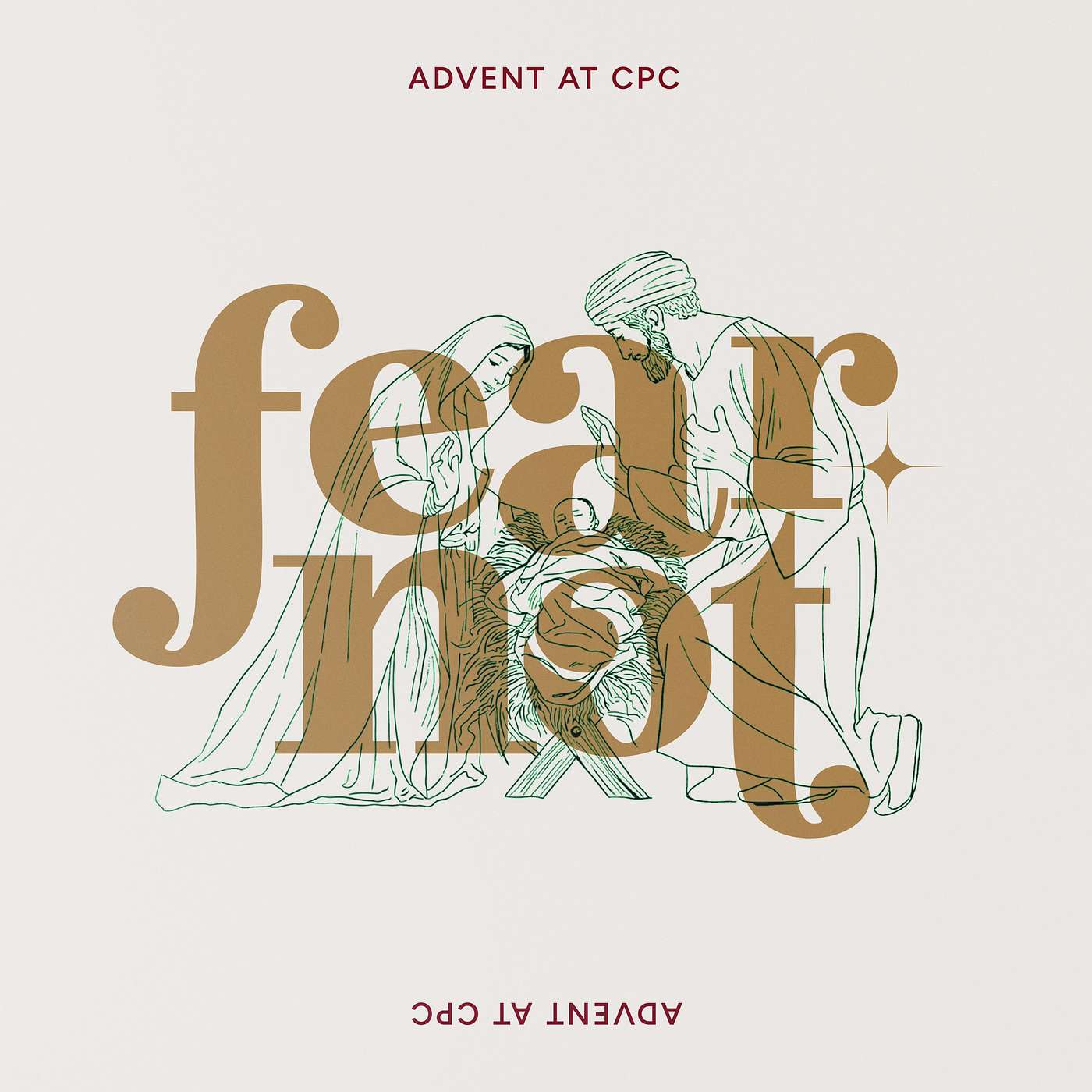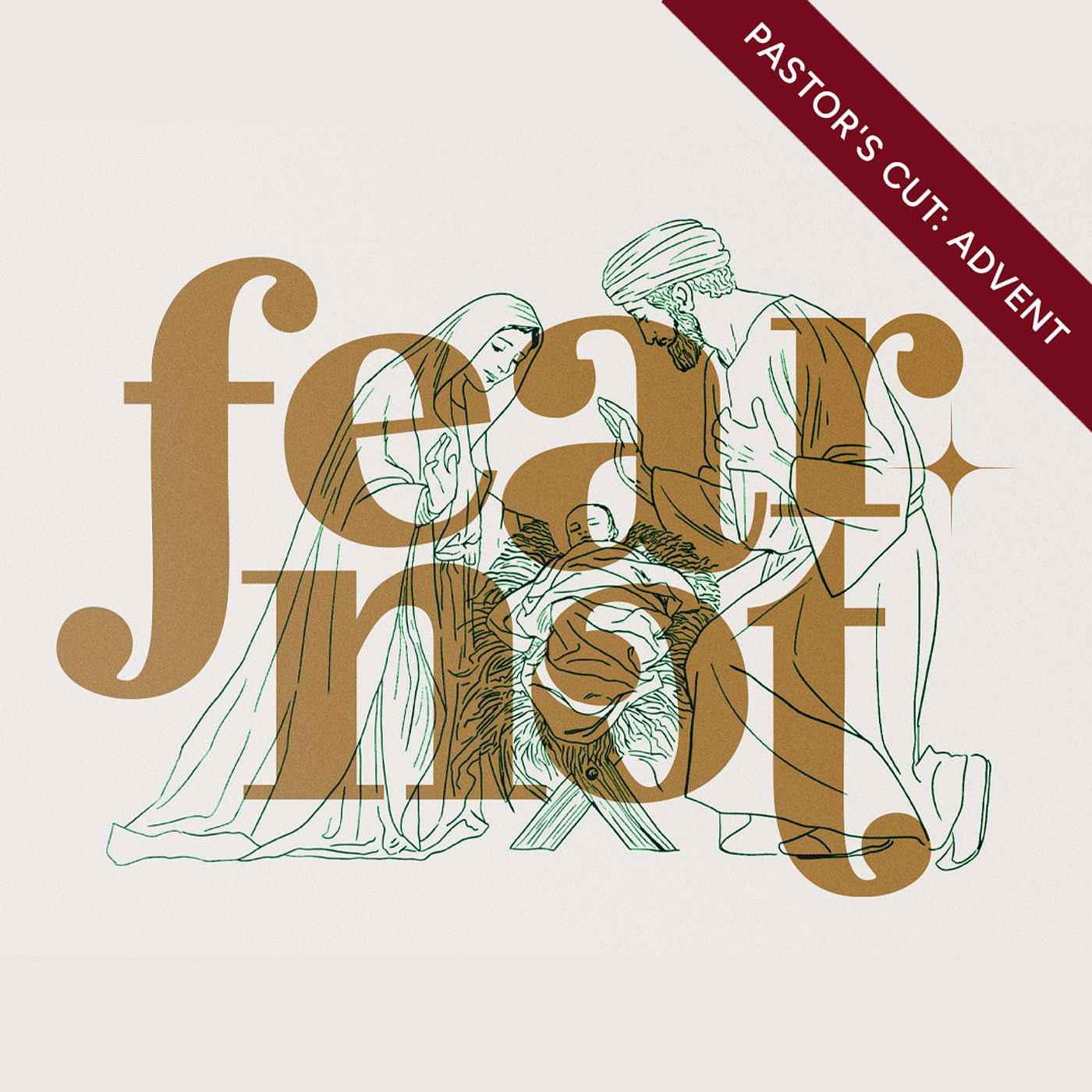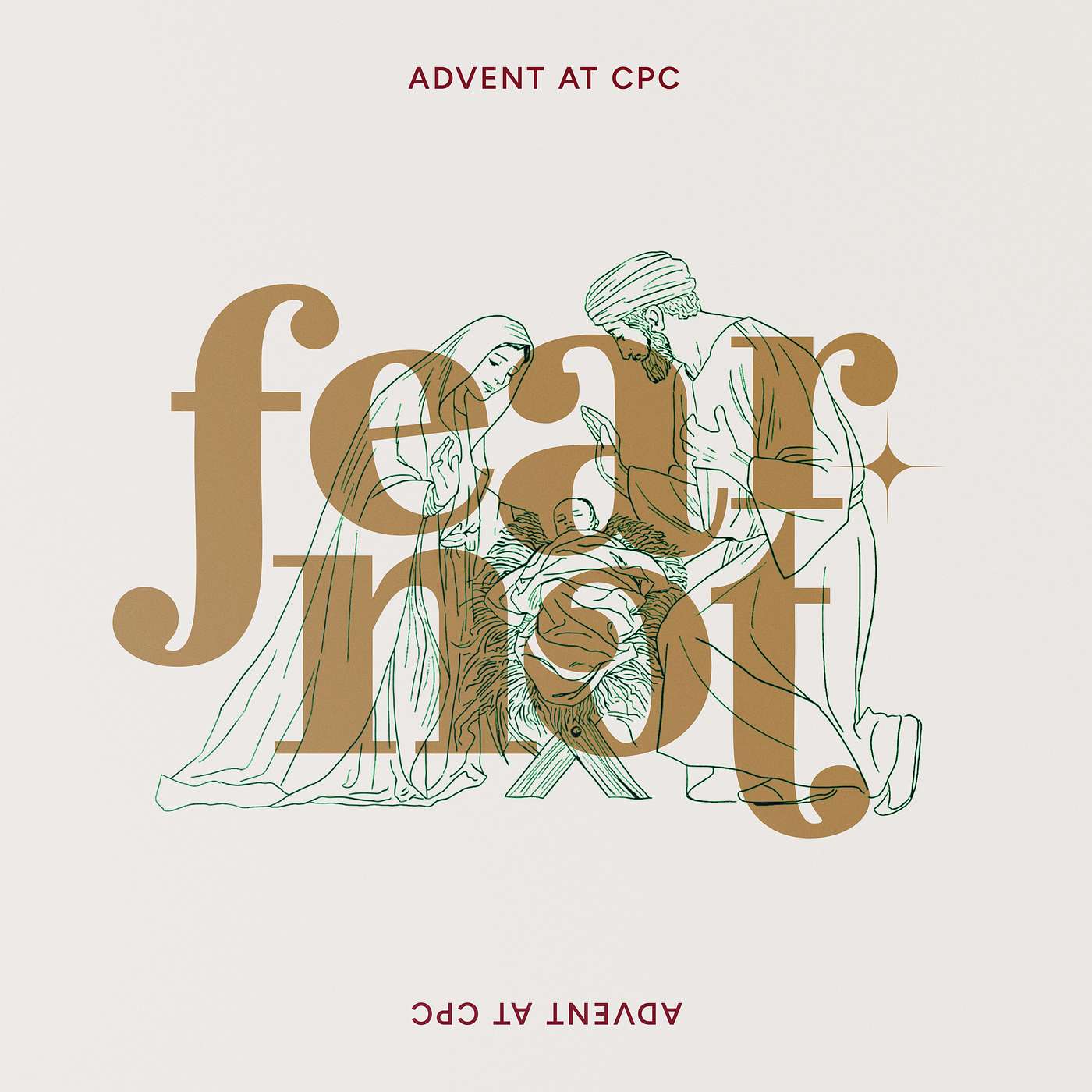Discover Christ Presbyterian Church
Christ Presbyterian Church

Christ Presbyterian Church
Author: Christ Presbyterian Church
Subscribed: 9Played: 629Subscribe
Share
© 2025 Christ Presbyterian Church
Description
Weekly teaching from Christ Presbyterian Church in Edina, Minnesota. Our pastors are of different ages, genders, and backgrounds and offer practical, thoughtful, Bible-based teaching to help us grow in our understanding of and relationship with Jesus. Learn more about CPC at cpcedina.org.
806 Episodes
Reverse
Donation Drive & Mission Spotlight information: qr.link/TeJW4I This episode discusses the second week of CPC’s “Fear Not” sermon series, focusing on Joseph’s response to the shocking news of Mary’s pregnancy and how it illustrates the human impulse to seek our own solutions instead of noticing God’s involvement. Pastor Petey and Pastor Melissa explore how fears, misplaced sources of security, and attempts to control life contrast with the deeper hope found in Jesus’ presence, as well as t...
By reflecting on Joseph’s experience in Matthew 1, Pastor Petey emphasizes that God meets people in uncertainty, offering His presence rather than a detailed plan. Ultimately, he encourages listeners to wait patiently, release control, and take the next faithful step, trusting that God is with them to save and guide them.
Donation Drive & Mission Spotlight information: qr.link/TeJW4I Pastors Melissa and Petey discuss the first sermon in the Fear Not series, focusing on how people—like Judah in Isaiah—often feel stuck in darkness yet are met by God’s surprising “nevertheless” of hope. They reflect on human reactions to feeling stuck, the tendency to blame God, and the importance of Christian community to hold hope for one another. The episode also features updates on CPC’s Christmas offering to The Dwelling...
The sermon teaches that although we often feel emotionally, spiritually, or practically “stuck,” God is actively writing a better ending to our story. Drawing from Isaiah 8–9, it emphasizes that God’s light breaks into our darkness through Jesus, the true King who brings hope, peace, and transformation when our own efforts fail. As we face seasons of fear or paralysis, we’re invited to look first for God’s light, lament honestly yet anchor our hope in His promises, and let the certainty of Go...
The sermon explains that coveting is a hidden, disordered desire that harms our lives and relationships, much like upstream pollution creates dead zones in a river. God gives the Tenth Commandment to transform our hearts, not just our outward actions, because coveting turns good things into idols. Through practices like gratitude and simplicity, and through the hope, power, and fullness we receive in Christ, God reorients our desires toward Him so we can truly live free.
The 9th Commandment calls God’s people to protect truth because communities cannot flourish where dishonesty destroys trust. Lies, whether spoken, exaggerated, repeated online, or shared for convenience, bind us in spiritual chains, while truthful speech reflects the character of God and the freedom Jesus brings. Christians are urged to tell the truth even when it costs them, refuse to spread unverified claims, and speak with both honesty and gentleness so that their words build others up.
This sermon focuses on the commandment “You shall not steal,” explaining that stealing violates God’s generous nature and our understanding that everything ultimately belongs to Him. Drawing from Genesis, Pastor Melissa teaches that humans are stewards, not owners, of what God has provided, and that theft undermines trust and dependence on God. The message concludes by urging believers to cultivate gratitude, release attachment to possessions, bring their needs to God, and share generously wi...
Pastor Petey explains that God calls His people to keep their promises and embody covenant love, reflecting God’s own steadfast faithfulness in all relationships, not just marriage. He concludes that through Jesus, who forgives and restores the unfaithful, we are set free to live faithfully — showing the world that commitment is more valuable than convenience and that God’s promises never fail.
Pastor Petey explains that the Sixth Commandment, “You shall not murder,” is about far more than refraining from taking a life—it’s about valuing every person as made in the image of God. Jesus expands this commandment to include anger, contempt, and words that dehumanize others, revealing that such attitudes also violate God’s intent. True freedom in Christ means rejecting hatred, extending grace, and treating all people with dignity, compassion, and love.
This sermon explores the Fifth Commandment, "Honor your father and mother," highlighting that it is not just for children but a lifelong call to give weight and value to those who came before us. It explains that honoring parents is less about obedience and more about acknowledging the significance of our roots—both in biological families and in the spiritual family of the church. Even when family relationships are broken or painful, God offers healing and a new sense of belonging through the...
This sermon emphasizes the importance of the Sabbath as a command from God designed to give us rest and reorient our identity away from constant striving and toward God’s grace. Rooted in both creation and redemption, the Sabbath reminds us that we are not defined by our work, but by the freedom and love God gives us. Rather than being a burden, Sabbath is a purposeful, holy pause that helps us resist the pressures of a nonstop world and live as people truly set free.
The message explores the true meaning of the third commandment, which is not just about avoiding profanity but about how God's people represent His name through their lives. Misusing God's name means attaching it to personal agendas, using it to justify harm, or claiming faith without living it out—actions that can distort God's reputation. Instead, we are called to bear His name well, reflecting the love, freedom, and truth found in Jesus, who perfectly represents God on our behalf.
Pastor Melissa Schaser explores the Second Commandment’s command against carved images, emphasizing that idols are not just physical statues but anything that takes the place of God's voice in our lives. Even good things — like work, family, or ambitions — can become idols when they define our identity, fuel our doubts, overwhelm us, or become the focus of our deepest longings. The sermon calls us to recognize these influences and gently re-center our lives around Jesus, who is our true mercy...
Petey Crowder preaches that the Ten Commandments are not restrictive rules but a framework for living in true freedom, rooted in God's rescue and grace. Obedience to God's commands is not about earning love but about staying close to the God who has already saved us. By turning away from lesser gods and distractions, we learn to live freely in relationship with the one true God.
Pastor Emily challenges common misconceptions about sharing faith, emphasizing that invitation is for everyone, not just a select few, and it’s not about pressure or perfection but about faithfully witnessing to what God has already done. She highlights that the Practice of Invitation is less about having the right words and more about being present with people, sharing vulnerability and authentically—especially through our own wounds and stories.
This sermon emphasizes CPC’s vision to be “open to how the gospel moves,” which means surrendering control and trusting God to lead, even when it's uncomfortable or uncertain. Drawing from Romans 10, the message explains that righteousness comes not from our efforts, but from faith—confessing Jesus as Lord both publicly and in the deepest parts of our hearts. Ultimately, faith is a daily practice of handing over the keys to our lives, letting Jesus take the lead, and continually calling on Hi...
In this sermon, Pastor Joe Bustamante reflects on Exodus 34 and how God reveals His unchanging character to Moses, emphasizing that God's presence and faithfulness do not depend on our performance but on His grace. He explains that, like the Israelites, we often seek the benefits of God without actually seeking God Himself, chasing modern-day "golden calves" when God doesn’t meet our expectations. Ultimately, Joe calls the church to become a people who reflect God's character through prayer, ...
This message explores how bowing before God is both a physical and spiritual act of worship and transformation, seen through the stories of Edmund Hillary, Moses, and Jesus. It emphasizes that true reverence leads to humility and openness to God's shaping work in our lives. By adopting the posture of bowing, especially in times of strength, speed, or struggle, we allow God to form us more fully into His likeness.
Pastor Emily Hamilton uses the TV show The Bear to illustrate how generational pain and dysfunction affect families, highlighting a character’s desire to break the cycle for future generations. She then explores Exodus 34, explaining that God allows people to experience the consequences of sin not out of retribution, but as a form of restorative discipline meant to lead to healing. Ultimately, the message points to Jesus as the one who enters into humanity’s broken story to disrupt the cycle ...
Pastor Carrie Gleeson reflects on how God's character—merciful, compassionate, and forgiving—is consistently shown not just in His words but through His actions, especially as seen in the story of Jonah. Jonah struggles with the idea that God's forgiveness could extend even to the cruel and undeserving, like the people of Nineveh, highlighting how God's grace is limitless and available to all who turn to Him. The message challenges us to embrace both receiving and extending forgiveness, not b...
























